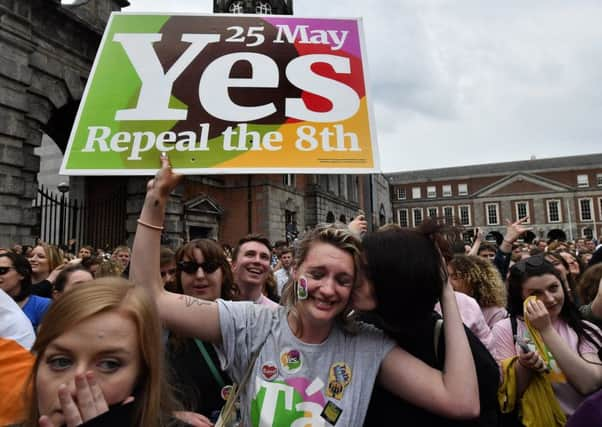Leader comment: There must be a second Irish abortion vote


A 12-year-old girl is raped by her uncle and it subsequently emerges that she is pregnant. In almost every part of the United Kingdom, it would be uncontroversial for the child to have an abortion. It would be seen by the vast majority of people as the right thing to do. However, in Northern Ireland, it would be illegal.
The girl’s case – it was real, not hypothetical – was mentioned in a United Nations report, published in February, which found that abortion was “virtually impossible” to obtain in Northern Ireland. “There is no exception allowing abortions in cases of rape or incest, not even when the victims are children,” the report said. The young girl in question travelled to Manchester to obtain an abortion, accompanied by police officers so they could obtain a DNA sample proving the uncle’s crime.
Advertisement
Hide AdAdvertisement
Hide AdFollowing the referendum overturning the ban on abortion in the Republic of Ireland, attention has naturally turned to Belfast. Normally, abortion would be a devolved issue but there has been no Northern Irish government since January 2017 following the collapse of power-sharing talks between the DUP and Sinn Fein. The area is currently under what is tantamount to direct rule by the UK. If Northern Ireland’s government had experienced a hiatus of a few weeks, it would hardly be right for Westminster to jump in and start fundamentally altering its laws. That would be a “power grab” in no uncertain terms.
However, if the absence of government continued for years on end, then MPs would have little choice but to abandon their caretaker role and start taking the big decisions.
The point at which they are required to legislate on abortion is open to debate, but it’s pretty clear what their decision would be should they do so.
Theresa May congratulated the Republic and the Together4Yes campaign over the referendum result but, given the Prime Minister’s understandable pre-occupation with Brexit and her minority Government’s need for the DUP’s support, she may well conclude the hiatus will have to continue for some time longer before Westminster is required to act.
A sensible compromise would be to mirror the vote south of the border and hold a referendum. Many Northern Irish politicians would undoubtedly be unhappy, but they would not be able to argue the decision was being imposed by the UK Government.
